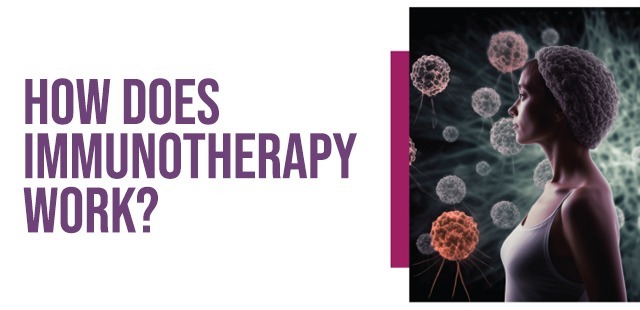Immunotherapy To Treat Cancer
2023-12-29| BLOG

Imagine an army within your own body, tirelessly patrolling and eliminating threats. That's essentially what your immune system does, constantly on guard against viruses, bacteria, and even rogue cells like cancer. But sometimes, cancer cells outsmart these internal soldiers, evading detection and multiplying unchecked. This is where immunotherapy comes in, a revolutionary approach that empowers your immune system to recognize and neutralise the cancer threat.
In this blog we will understand how Immunotherapy revolutionises cancer treatment and we will also explore the top cancer treatment centre in Patna where modern cancer treatment like Immunotherapy is available.
What is Immunotherapy?
Think of it this way: immunotherapy acts like a boot camp for your immune cells, training them to identify and attack cancer more effectively. Unlike traditional treatments like chemotherapy or radiation, which target cancer directly, immunotherapy focuses on your own defence. It's like giving your body the tools and tactics to win the internal battle against cancer.

How Does Immunotherapy Work?
Your immune system’s everyday job is to protect your body from intruders, from allergens and viruses to damaged cells that could become cancerous. It has special cells that constantly patrol your body for intruders. When they find a damaged or cancerous cell, they destroy it. That keeps cancerous tumours from growing and spreading. But cancer is a moving target. Cancerous cells constantly look for ways to dodge immune system defences.
Immunotherapy works by:
- Training your immune system so it can do more to find and kill cancer cells.
- Helping your body produce cancer-fighting immune cells that effectively locate and destroy cancer cells.
What are Types of Immunotherapy?
Immunotherapy Types Include:
- Checkpoint inhibitors:These drugs act like roadblocks, removing the "invisibility cloaks" that cancer cells wear to hide from the immune system. Once unmasked, the immune cells can readily recognize and attack them.
- CAR T-cell therapy:This involves genetically engineering a patient's own T cells (powerful immune cells) to recognize and destroy specific cancer cells. These "supercharged" T cells are then reinfused into the patient, launching a targeted attack on the tumour.
- Tumour-infiltrating lymphocyte (TIL) therapy: This approach isolates and expands tumour-fighting immune cells found within the tumour itself. These TILs are then reintroduced into the patient, boosting the local immune response against the cancer.
- Antibody-drug conjugates: These are targeted "smart bombs" that combine antibodies that recognize cancer cells with potent drugs. Once attached to the cancer cell, the antibody delivers the drug directly, killing the cancer cell while minimising harm to healthy cells.

Advanced Cancer Care in Patna
Seeking expert cancer care in Patna? Look no further than Narayana Cancer Centre, a leading facility offering cutting-edge treatments like immunotherapy.
A team of renowned cancer specialists in Patna utilises the latest advancements to provide comprehensive and personalised care for various cancer types. Prioritise for your well-being they aim to guide you through every step of your cancer journey with expertise, compassion, and the latest medical innovations.
Trust Narayana Cancer Centre as your premier destination for cutting-edge cancer treatment and exceptional care in Patna.
Conclusion
While immunotherapy holds immense promise, it's important to remember it's still a young field. It can be more expensive than traditional treatments, and side effects can occur, though often less severe than those associated with chemotherapy or radiation. Additionally, results may take longer to appear compared to other treatments.
Despite these challenges, the potential of immunotherapy is undeniable. Early results are encouraging, with some patients experiencing long-term remission or even cures. As research advances and treatment protocols are refined, immunotherapy is poised to become a cornerstone of cancer treatment, offering hope and a brighter future for many patients.




